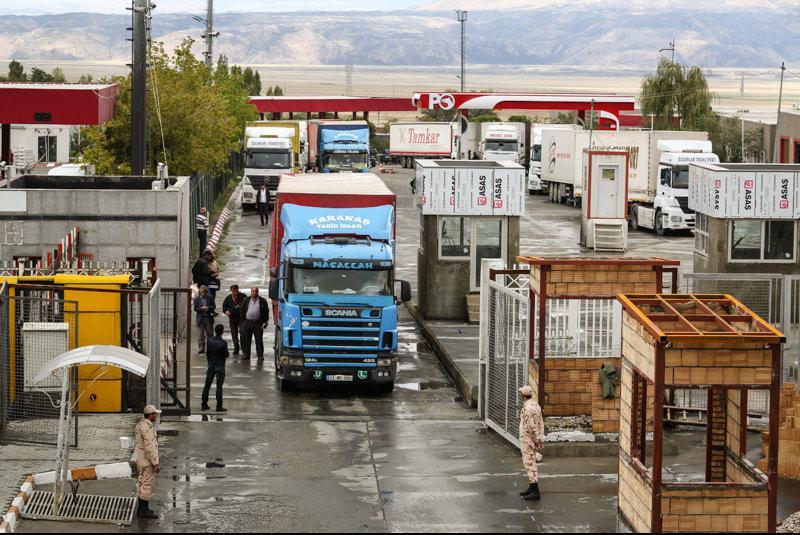Turkey-US start talks on sanctions against Iran
Sevil Erkuş - ANKARA

Turkey and the United States have kicked off talks on the issue of a new round of sanctions against Iran, as many Turkish companies are prime trade partners with Tehran. Compared to the past, Washington will be more “aggressive” in implementing those measures against Iran, a United States official has said.
“We talked about the details of the sanctions. What we explored with the government of Turkey are potential implications for Turkish companies and Turkish economy for different measures. We agreed today that as allies this is something that we have to continue to study and continue to exchange details on,” Assistant Secretary of the Treasury for Terrorist Financing Marshall Billingslea told a group of journalists on July 20.
The U.S. official held meetings with Turkish companies on July 19 and met with Turkish officials from the Foreign Ministry, Treasury and Central Bank on July 20.
“Turkish authorities are carrying out the necessary work for Turkey not to be negatively impacted by the upcoming sanctions and holding consultations with our American counterparts,” the Turkish Foreign Ministry said after the talks.
“Iran is an important neighbor for Turkey, in view of both our bilateral economic and commercial relations as well as our energy imports. Therefore, we will continue to monitor U.S. sanctions within this framework,” the ministry said in a written statement.
Billingslea said a major feature of his visit is to discuss the “world’s worst sponsor of terrorism, which is Iran.” This is the first the conversation about sanctions and there will be many more conversations about sanctions, he said.
The official said Washington is considering the implications of sanctions on the Turkish economy, but he said it was early to talk about any exemptions in the case of Turkey.
“We are very sensitive about the effect that could be had on the Turkish economy. That’s why we are discussing the very, very specific matters of concerns of both countries. At this stage, we are not at a position to suggest that we are issuing waivers or exemptions. It would be premature to discuss that. Rather, we have to understand the content, the specifics of all these different business transactions so we can make assessments in Washington and make the best recommendations as possible,” said Billingslea.
The first of major reimposed sanctions will happen at the beginning of August, followed by the sanctions on oil trade and the Central Bank of Iran, which will happen in November, he said.
“We need Turkish companies and Turkish banks to recognize that the reason we gave a full 180 days before those sanctions was to allow those companies enough time to wind their business down,” Billingslea said, adding that it is up to the U.S. Department of State to declare whether the U.S. sanctions will be zero imports of subject goods or a significant reduction.
“If the Turkish companies want to continue to do business with the Iranians in those prescribed areas, then they have to understand that they will not do business in the U.S. market or in the U.S. financial system,” said the official.
When asked how the U.S. will enforce the sanctions against Iran to be more successful than the previous experience, in which countries such as Turkey conducted trade in gold, the U.S. official said, “The treasury sanctions will be enforced very, very aggressively and very comprehensively, even more.”
“So you should expect that we will be much more active than the past. I think the Turkish government understands our position on that. In terms of efforts to avoid sanctions, we will certainly encourage that efforts not be made. We certainly would be very, very concerned about trying to trade with Iran in gold. That is something that will become sanction in the beginning of August,” the official said.
“But it would certainly be a very bad idea to think that when somebody is going to trade with Iran in gold and avoid U.S. actions if that occurs,” he said.
Billingslea said they are “tracking large purchases of gold in Turkey these days” and they are “examining and trying to understand why that’s happening.”
“But I think that has to do with currency issues and other things,” he said.
The U.S. official also noted that he presented some information over their investigation regarding the outlawed Kurdistan Workers’ Party (PKK) and that the issue was also part of discussions in Ankara.
“We, in fact, are here to provide additional information to the government of Turkey on PKK operatives, their locations and what they are doing,” he said.
The official noted that the U.S. and Turkey have intensified cooperation on this topic for the past several months and that is because the U.S. has a new government.
















